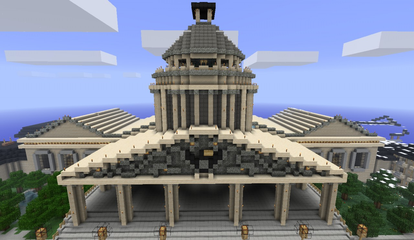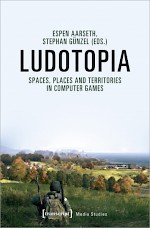
No Place Like Home: Dwelling and Being at Home in Digital Games


In the past few weeks, the world has taken quite the turn. The World Health Organisation is actually recommending people stay home and play videogames and schools have closed with University of Malta teaching remotely for the rest of the semester. The Institute of Digital Games has provided a list of free educational games and resources to help parents and young students learn while they are stuck at home, but as research institute we can offer more food for thought while you’re at home.
Staying Home: Casey, Martin Heidegger, Yi-Fu Tuan and Christian Norberg-Schulz
While most of the world is staying home, what does home mean? In order to examine players’ relation with with digital game worlds Dr. Daniel Vella turns to the works of philosophers Casey, Martin Heidegger, Yi-Fu Tuan and Christian Norberg-Schulz. Research in game studies has focused on the analysis of these virtual worlds through examination of the movement through it.
“Nevertheless, we find ourselves lingering on a bench in Life Is Strange (Dontnod Entertainment 2015), resting at a bonfire in Dark Souls (From Software 2011), returning to the decks of the Normandy between missions in Mass Effect (BioWare 2007) or to our bombed-out shelter in This War of Mine (11 Bit Studios 2014), gathering materials to build a stronghold in Minecraft (Mojang 2009) or decorating and furnishing our rooms in Animal Crossing: New Leaf (Nintendo EAD 2012).” - Daniel Vella, Ludotopia
Animal Crossing and Minecraft: Cases Studies of Homes in Games
There are a number of aspects related to home evident in present in both Animal Crossing and Minecraft and highlighted by the philosophers Vella grounds his examination, namely the act of pausing and lingering, the act of building and organizing the ‘dwelling’, the feeling of familiarity, and identification of the ‘centre’ accompanied with the distinctions of inside and outside.
Animal Crossing allows for this pausing and lingering with their park benches which serve no functional purpose but just to linger in that moment creating a pause in the virtual world the player is inhabiting. Both Animal Crossing and Minecraft have two forms of building that are prominent parts of the game and locate the player a ‘home’ for the duration of the game. There the player is (directly or indirectly) tasked with improving it, contributing to philosophical aspects of home-building.
As Vella concludes “[…] games can not only re-enact our practices of being at home, but, in doing so, can represent to us these practices and senses of ‘home,’ and lead us to reflect on – and, perhaps, to engage critically with – what is entailed in the idea of being at home.”
Dr. Vella’s full chapter is available for download at PhilPapers for those interested in a detailed reading. If you’re stuck at home playing Animal Crossing, it might be the ideal academic reading material!
Game Studies Book: Spaces, Places and Territories in Computer Games
For a full exploration of specialty in games, Vella’s analysis is a chapter in a pioneering game studies book edited by Espen Aarseth and Stephan Günzel titled Ludotopia. Ludotopia moves away from the debate on narrative nature of games and instead focusses its attention on the experience of the virtual space and place.
Interested in Games and Culture?
University of Malta has a world-class game design graduate program
The Institute of Digital Games is ranked in the top 25 game design graduate programs by the Princeton Review. It is a leading research institute in game studies and game AI. Students join us from all over the world for a two-year M.Sc. in Digital Games. The degree has a strong research focus and the second year is spent on writing a dissertation under guidance of some of the leading game scholars, regularly publishing on philosophy and games, game-based learning, AI and Games, and a wide range of topics related to games.
Want to Stay Updated with our Latest Events and Research?
The University of Malta may be physically closed due to measures to mitigate the spread of the Covid-19 pandemic, but we are still in full-swing in terms of research and events. We are organizing a number of virtual events and will continue to inform our followers of our ongoing research. If you’d like to stay up to date with what we’re doing at the Institute of Digital Games, please subscribe to our Newsletter below.


